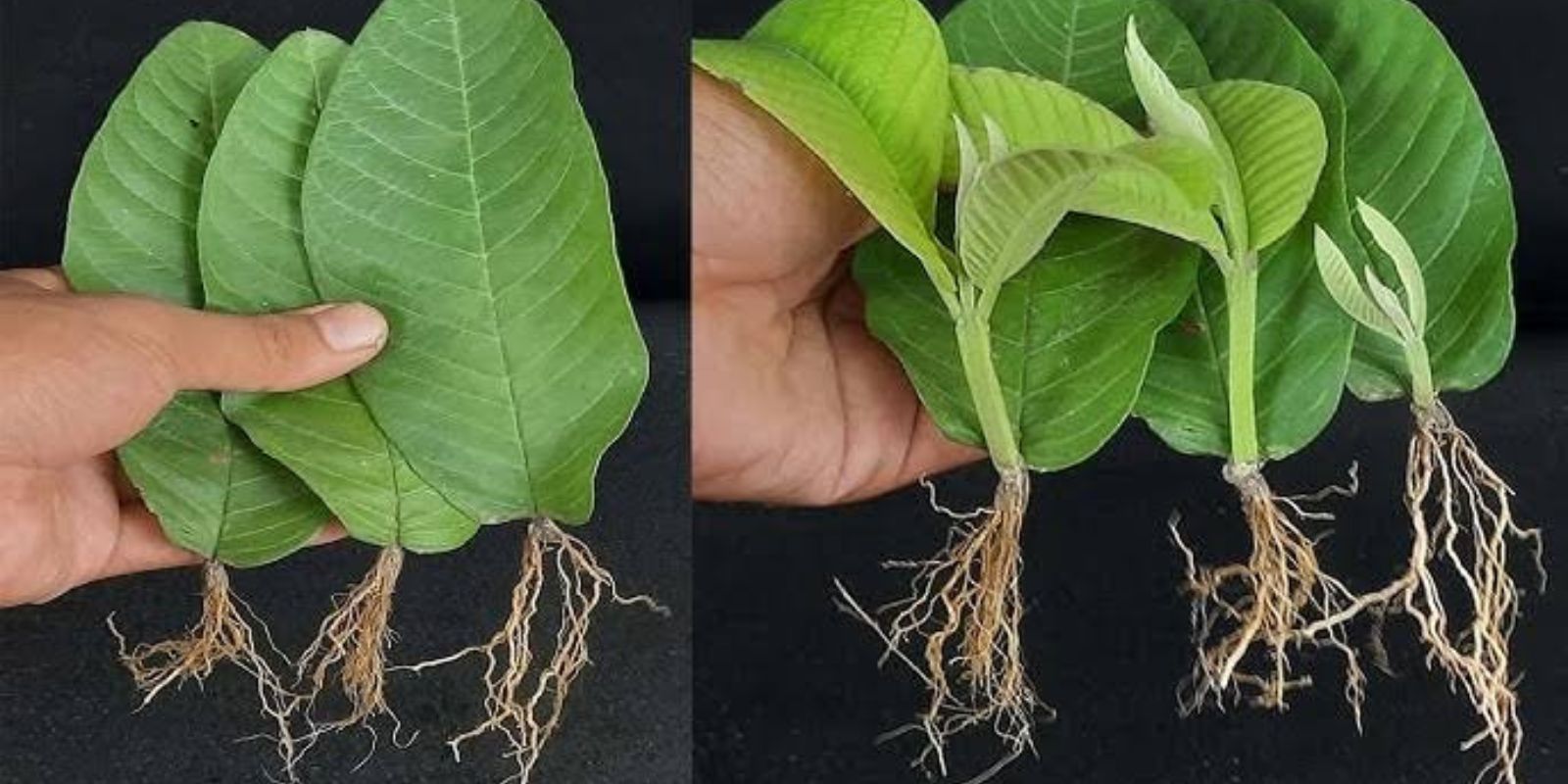Guava trees are a favorite among gardeners for their delicious fruits, minimal maintenance, and versatility. While most people focus on fertilizers and watering schedules, many overlook the power of guava leaves. These humble leaves offer numerous benefits, from improving soil quality to acting as a natural pesticide. In this article, we’ll dive deep into five essential tips to grow healthy and productive guava trees using guava leaves.
The Importance of Guava Leaves for Your Garden
Guava leaves are rich in nutrients like calcium, potassium, and antioxidants, making them an excellent resource for nurturing guava trees. They can improve soil fertility, enhance tree health, and even ward off pests. Moreover, using guava leaves is an eco-friendly and cost-effective way to maintain your garden, promoting sustainability.
Let’s explore how to incorporate guava leaves into your gardening routine to achieve a lush, thriving guava tree.
1. Guava Leaf Mulch: Nourish and Protect
Mulching is an essential gardening practice that helps retain soil moisture, regulate temperature, and prevent weed growth. Guava leaves make excellent mulch when crushed and spread around the base of your guava tree.
- How to Use: Collect fallen guava leaves or trim a few healthy ones. Crush them lightly and layer them around the tree’s base, ensuring they don’t touch the trunk to prevent rot.
- Benefits: As the leaves decompose, they release nutrients like calcium and potassium into the soil, enriching it naturally. They also create a barrier that prevents weeds from competing with the tree for resources.
This simple step can make a significant difference in maintaining a healthy tree.
2. Guava Leaf Tea: A Natural Fertilizer
One of the best ways to utilize guava leaves is by creating a nutrient-rich guava leaf tea to fertilize your tree. This liquid fertilizer is packed with minerals that promote growth and fruit production.
- How to Prepare:
- Boil a handful of fresh or dried guava leaves in water for 15–20 minutes.
- Let the solution cool completely and strain out the leaves.
- Use the tea to water the base of your guava tree once every two weeks.
- Benefits: The tea boosts the overall health of the tree, encourages fruiting, and enhances the tree’s resistance to diseases.
3. Natural Pest Control with Guava Leaves
Pests like aphids, mealybugs, and whiteflies can wreak havoc on guava trees. Luckily, guava leaves have natural pest-repellent properties, making them an excellent organic solution.
- How to Use:
- Crush fresh guava leaves and place them around the base of the tree or in areas prone to pest infestations.
- Alternatively, spray guava leaf tea (mentioned above) on the leaves and stems of the tree to deter pests.
- Benefits: Guava leaves release compounds that repel pests without harming beneficial insects like bees and ladybugs. This method is safe for the environment and your garden.
4. Boost Root Health with Guava Leaves
The roots are the foundation of a healthy guava tree, and guava leaves can significantly enhance root development. When incorporated into the soil, these leaves provide essential nutrients that strengthen roots and prevent fungal infections.
- How to Use:
- Dry guava leaves thoroughly and grind them into a coarse powder.
- Mix the powdered leaves into the soil before planting a new tree or around the base of an existing tree.
- Benefits: This practice improves soil structure, prevents root rot, and encourages the growth of a robust root system, ensuring your tree can absorb nutrients effectively.
5. Composting with Guava Leaves: A Long-Term Solution
Composting is a fantastic way to recycle organic waste, and guava leaves make an excellent addition to any compost pile. When broken down, they release essential nutrients that improve soil quality and benefit the tree over time.
- How to Use:
- Collect fallen guava leaves and add them to your compost bin or pile.
- Ensure they are well-mixed with other organic matter like fruit scraps, vegetable peels, and grass clippings.
- Once the compost is ready, spread it around the base of your guava tree.
- Benefits: The compost enriches the soil with a steady supply of nutrients, improving tree health and increasing fruit yield.
Additional Tips for Growing Healthy Guava Trees
While guava leaves are incredibly beneficial, here are a few extra tips to ensure your tree thrives:
- Sunlight: Guava trees require at least 6–8 hours of sunlight daily to grow and produce fruits.
- Watering: Water the tree deeply but avoid overwatering, as guava trees dislike waterlogged soil.
- Pruning: Regularly prune dead or damaged branches to encourage new growth and prevent disease.
- Fertilization: Use organic fertilizers alongside guava leaf tea for optimal growth.
- Pest Monitoring: Keep an eye out for pests and take immediate action if you notice infestations.
Why Choose Guava Leaves for Your Garden?
Using guava leaves in your garden is not just about growing a healthy tree—it’s about embracing a sustainable, eco-friendly approach to gardening. By repurposing natural resources, you reduce waste and promote a healthier environment. Plus, guava leaves are readily available and cost nothing, making them a practical choice for every gardener.
Conclusion: Let Your Guava Tree Thrive Naturally
Incorporating guava leaves into your gardening routine is a game-changer for growing healthy, productive guava trees. Whether you’re using them as mulch, natural fertilizer, or pest control, these leaves offer an array of benefits that go beyond traditional gardening methods.
Have you tried using guava leaves in your garden? Share your experience or tips in the comments below!

